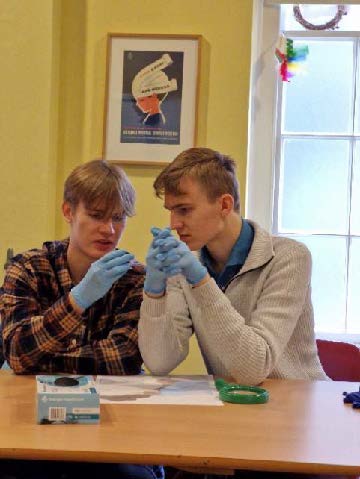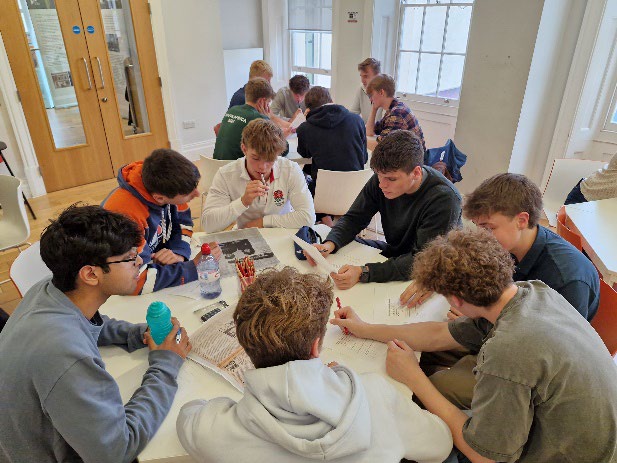Young Historian of the Year 2024
Fourth Form student, Joshua, has earned the prestigious title of the Historical Association Key Stage 3 Young Historian of the Year 2024. The competition, held in partnership with the Spirit of Normandy Trust, required students to write an essay on an aspect of British involvement in World War Two. Joshua’s essay explored the possibility of failure of the D-Day landings and impressed the judging panel, who described it as “well-crafted, a good read, and brought out all the salient points in a logical progression.”
We welcomed Peter Lankester, Vice Chairman of the Spirit of Normandy Trust, to the RGS to present Joshua with his award. During the ceremony, Lankester also spoke to the Junior History Society, sharing the work of the trust and stories from World War Two veterans, as well as his own experiences as a Royal Navy helicopter pilot.
Sixth Form History Trip
On Monday 30 September, the History department took 25 Lower and Upper Sixth Historians to London for an enriching day designed to complement their A Level studies, specifically focusing on the Crusades and Modern Britain, and offering students the chance to explore history beyond the classroom.
The day began with a visit to the Museum of the Order of St John in Clerkenwell. During their time there, students participated in an artefact handling session. They worked with ancient coins from the four Crusader States, learning how to date and place them in context. They also handled a replica of the Church of the Holy Sepulchre, a 17th-century Holy Land pilgrimage souvenir and tried on Crusader armour, getting a feel for the equipment used by medieval knights. As part of their visit, students were also treated to a guided tour of the old priory, crypt, and medicinal herb garden.
In the afternoon, the group travelled to Brixton for the next phase of their trip: a source analysis session at the Black Cultural Archives. This session was designed as an extension of the Modern Britain course and focused on the events surrounding the Brixton Uprisings of 1981. Students explored the significance of language in historical interpretations, discussing the impact of terms like “riots” versus “uprisings.” In groups, they delved into primary source materials, including local newspapers, photographs, and first hand accounts, to analyse the causes and effects of the 1981 Brixton uprising.






